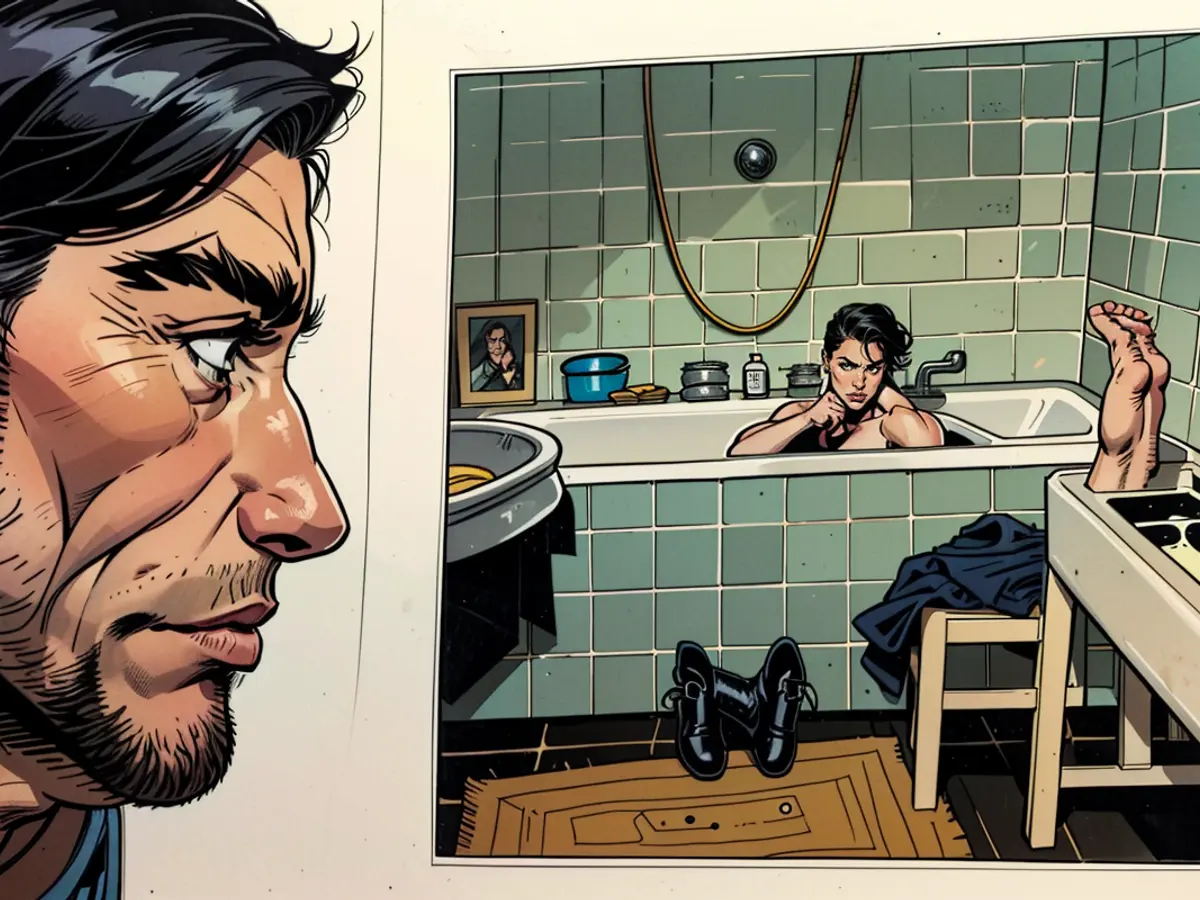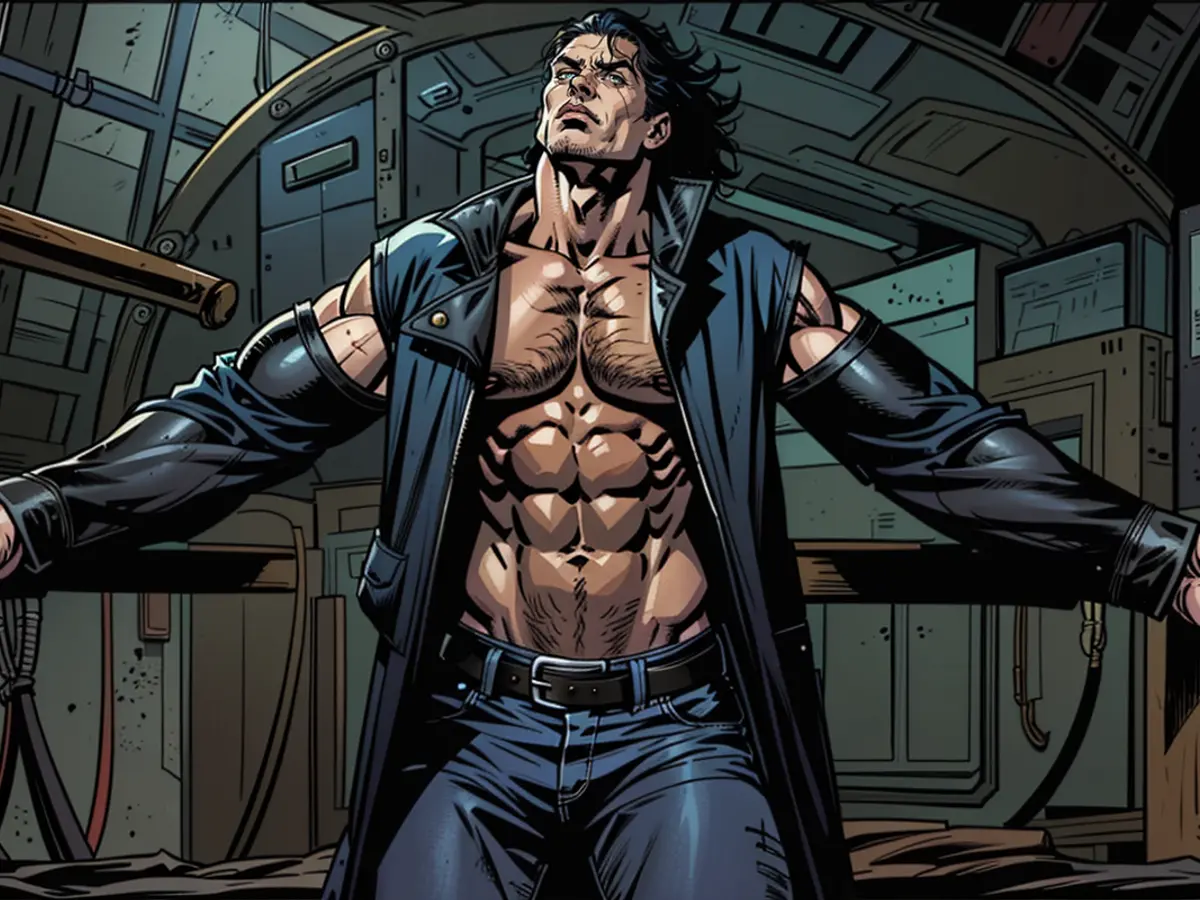Lee Miller's Persistent Memory Defiance
During World War II, Lee Miller stood as a testament to the horrors committed by the Nazis with her camera, yet her name remains scarcely recognized. The biopic "The Photographer" may bring this American woman's name into the limelight, providing her the praise and recognition she rightfully deserves.
In a world where history is often forgotten and extremist ideologies resurface, it's critical to recall the lessons of the past, particularly those of World War II and the atrocities committed by the Nazis. Individuals who documented or survived this time hold immense significance.
Unfortunately, the name Lee Miller is seldom recognized beyond specialist circles. Her photographs serve as undeniable evidence of the depths of the Nazis' crimes, yet she remains an enigma. "The Photographer," directed by Ellen Kuras, has the potential to rectify this and give Miller the recognition she deserves. Her most notable images, such as those from the concentration camps Dachau and Buchenwald, act as historical records - stark reminders of human depravity that must never be forgotten.
Alcohol, Art, and Warfare
England in the 1970s. A melancholic and battle-scarred Lee Miller (played by Kate Winslet) is interviewed by a young and eager journalist, Tony (Josh O'Connor). Reluctantly, she agrees to reveal her past, beginning with the 1930s. At this point, Lee, once a renowned model, enjoyed photographing and holidaying in the Cornish mountains with her artistic friends. Her companions included French journalist Solange D'Ayen (Marion Cotillard), surrealist poet Paul Éluard (Vincente Colombe), his actress and muse wife Nusch (Noémie Merlant), and British art collector and artist Roland Penrose (Alexander Skarsgard). As they indulged in wine, cheese, and hedonistic activities, they also discussed the rising threat of Adolf Hitler and the Nazi Party.
Roland's arrival ignites feelings that drew him towards Lee, eventually leading her to move to London with him. With the onset of World War II, Lee can no longer merely observe as Hitler wreaks havoc upon Europe. She channels her desire to make a difference by photographing women in gas masks, as well as models posed against war backdrops, for British "Vogue."
The Woman in Hitler's Bathtub
Lee's US passport allows her to be accredited as a civilian war correspondent alongside "Life" photographer David Sherman (Andy Samberg). She begins her journey by visiting Allied quarters and field hospitals before documenting the heart of the brutality. As she continues to witness the horrors, her reliance on alcohol intensifies.
With the war's end drawing near, Roland travels to Paris to entice Lee to return home. However, Lee has become emboldened by her experiences and cannot cease her mission. Her photographs and reports find their way into the pages of British Vogue, and viewers are introduced to her most iconic images, such as her self-portrait in Hitler's bathtub in Munich, taken the day of his suicide, unbeknownst to her at the time.
"The Photographer" highlights the importance of Lee Miller's work, not solely as an artistic expression, but as a historical obligation to preserve the truth. However, its portrayal of its protagonist falls short, failing to fully capture Miller's complex character. Instead, the narrative is linear and clinical, neglecting the depth and dynamism Miller's unique personality deserved.
A Stirring Performance from Kate Winslet
Kate Winslet delivers a standout performance coming to life in Hannah Miller. Miller's rebellious nature—as a prominent model from the 1920s who thrived in an environment of fleeting romances and liberated sexuality—is merely touched upon. This characteristic was a defining aspect of what made Miller extraordinary. Her relationship with art, liberty, and self-determination in a male-dominated world deserved further exploration, but these elements are not fully represented in the film's overly straightforward narrative.
It's only in the film's final third that Winslet truly excels. As the war reaches its conclusion in April 1945, and Miller bears witness to the atrocities of the Nazis at the liberation of Dachau and Buchenwald, Winslet delivers an exceptional performance, masterfully portraying her character's emotional turmoil between the emotional weight of her experiences and the necessity to preserve them for future generations. Yet, it's a shame that the film needs so long to reach this emotional depth.
Winslet's portrayal of Miller symbolizes the responsibility not just of historians and artists, but of every individual. If we choose to forget, if we allow history to fade, we provide an opening for those intent on twisting and denying the truth. The resurgence of right-wing populist movements and revisionist historical interpretations in many countries highlights the importance of "The Photographer" as more than just a biopic. It serves as a protest against forgetting in a world that is moving increasingly to the right, where nationalism and intolerance are on the rise. The film offers a quiet but powerful reminder that recalling the horrors of the Third Reich is not only a historical responsibility, but an ethical imperative.
Despite the film's failure to fully explore Lee Miller's complex character and her impact on the art world, the film "The Photographer" serves as a platform to bring Miller's name into the limelight, much like a film screening at a prestigious film festival could amplify her recognition further.
As the film delves into Miller's harrowing experiences during World War II, her photographs from the concentration camps like Dachau and Buchenwald become even more poignant reminders of the horrors of the Holocaust, urging viewers to never forget.








